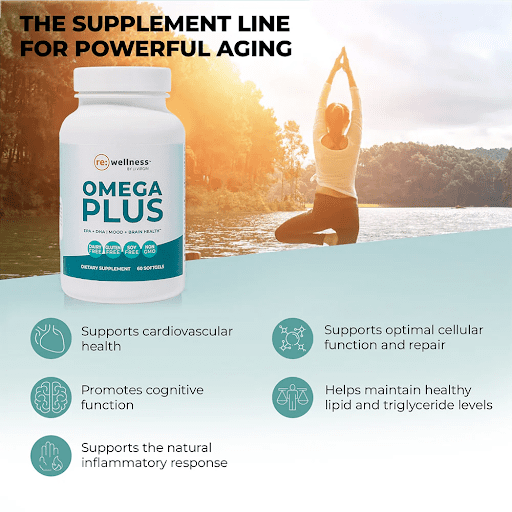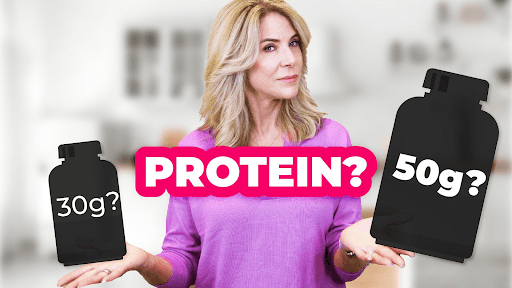Does it really make a difference what kind of eggs I buy?
It’s a common question, and the easy answer is yes! Here’s why…
You Are What You Eat Ate
We’ve all heard the saying “You are what you eat.” But this topic gives me the chance to share one of my favorite truths about a healthy diet: you are what you eat ate.
Like many birds, chickens eat whatever is on the ground in front of them. When they’re raised in an organic pasture, they have access to wholesome, naturally available food. You enjoy that clean nutrition when you eat their eggs.
But if chickens are kept in filthy factory farm conditions and fed a diet made up of soy and GMO corn… Unfortunately, you’re sharing those meals, too!
Feeding chickens corn and soy actually changes their fatty acid profile, which makes their meat and eggs more likely to cause inflammation.1
So what are your options?
To Egg or Not to Egg
Some people have a genuine sensitivity to eggs and should avoid them completely.
As The Virgin Diet explains, symptoms of food intolerance can occur up to 72 hours after you eat and can include headache, fatigue, joint pain, bloating, weight gain, or cravings.
It’s important to pull eggs from your diet and then test them back to find out whether your system says yes or no. (Get started for free with the 7-Day Stop, Drop & Swap Challenge!)
Among people intolerant to eggs, the most common symptoms are fatigue, nausea, bloating, and stomach cramping. However, any change from your norm can indicate that eggs are a no-go.
It’s crucial to test your sensitivities not only to eggs, but to other common inflammatory foods. For some of my clients, testing reveals that eggs aren’t actually to blame for their weight loss resistance or gut discomfort.
Instead, the offender is an extreme sensitivity to the corn or soy typically offered to factory-farmed chickens! In those cases, choosing pasture raised, organic eggs can eliminate symptoms.
If eggs aren’t a problem for you, it’s fine to enjoy them 2-3 times a week as part of a healthy, balanced diet. Just don’t eat them every day, as over-exposure can cause you to develop sensitivities to any food.
How to Choose a Good Egg
As with any food, quality counts! Buy the best eggs you can find.
1) First, look for “organic” on the label. In the U.S., that means the chickens only received organic feed — no animal byproducts or genetically modified crops (GMOs). Organic eggs also ensure the chicken’s basic living standards, including access to the outdoors and no cages.
2) Second, it’s equally important to choose eggs labeled “pasture raised” or “pastured.” That means each chicken gets over 100 square feet of outside space to roam and feed. By comparison, “free range” birds only get 2 square feet each, while many factory chickens live their entire lives caged indoors. It’s not hard to guess why pastured birds produce healthier eggs!
How you prepare your eggs also matters. Nothing drives me crazier than seeing a supposedly health-conscious person order an egg white omelette!
The yolk is where all the good stuff is, including vitamins and minerals. In fact, one recent study found that egg yolks contain antioxidants that can help prevent cancer and heart disease.2
However, if you cook your eggs at high heat, you lose at least half of those anti-inflammatory benefits. Keep your eggs whole, preferably either soft boiled or poached.
If you do occasionally eat eggs, make them at home, where you can guarantee their quality. (Restaurants seldom serve the best eggs for the simple reason that they’re more expensive.)
You’re Worth It!
Selecting pastured, organic eggs is just as important as insisting on wild-caught fish or grass-fed beef. When you’re standing in front of the dairy case wondering whether organic eggs are worth the extra few dollars, you’re asking the wrong question!
The real issue is whether you’re willing to sacrifice your energy and wellbeing over the price of a dozen eggs. Yes, it’s worth investing in your health!
Choosing the highest quality eggs is one more step in your journey to becoming your healthiest, most vibrant self.

Thanks so much for reading! You can get plenty of delicious, healthy recipes when you follow me on Pinterest…

Article Sources:
1 https://www.ncbi.nlm.nih.gov/pubmed/1852694
2 https://www.sciencedaily.com/releases/2011/07/110706093900.htm






